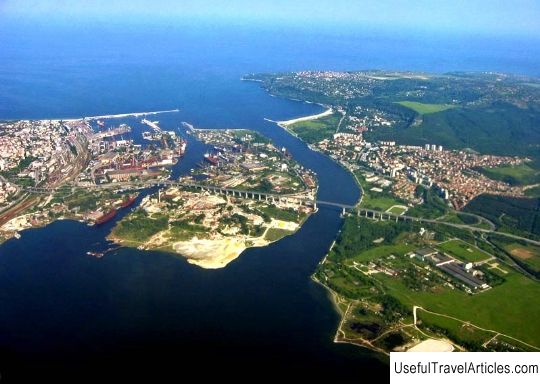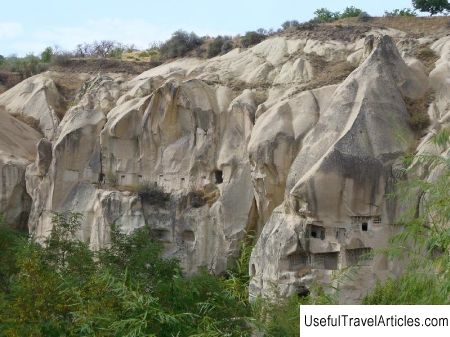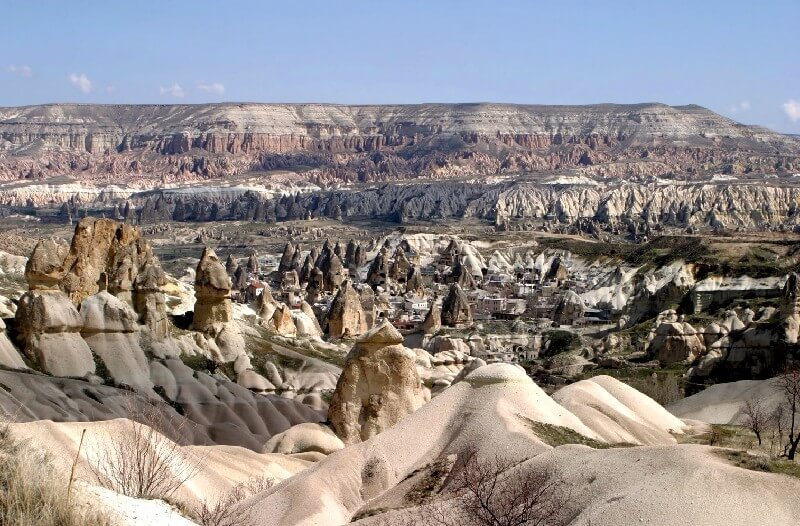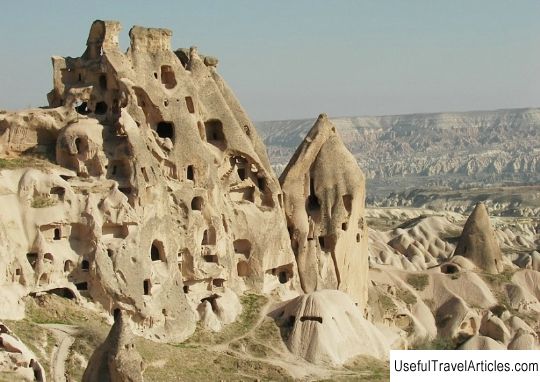Avanos description and photos - Turkey: Cappadocia
Rating: 8,2/10 (6544 votes) 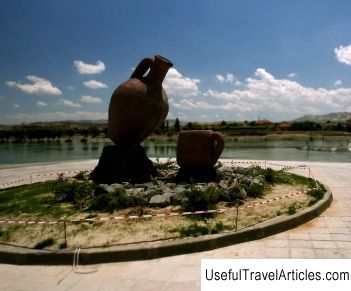
Avanos description and photos - Turkey: Cappadocia. Detailed information about the attraction. Description, photographs and a map showing the nearest significant objects. The title in English is Avanos. Photo and descriptionAvanos is a small town of Cappadocian artisans, famous for its ancient pottery traditions and proximity to one of the most famous landmarks of Cappadocia - the rocky city of Zelve. The old city of Avanos located eighteen kilometers northeast of Nevsehir next to the Kyzyl-Irmak (Red River) valley - the longest river in Turkey (1151 km). The name of the river is explained by the color of the water in this section of its course. This is due to the fact that its channel is rich in iron ore and red clay, from which all Avanos ceramics are made. The Hittites called this river Marassantia - it was the border of their empire, and in the Hellenistic era it was called Khalis. In Hittite times, the city itself was born, which then served as a border outpost and a large trade center, famous for its potters. Due to the loose clay soil, there are no cave churches or stone mushrooms in Avanos. But it occupies an advantageous strategic position in the central part of Cappadocia - to Zelva (6 km), Chavushin (6 km), and if you wish, you can walk to Goreme (10 km), and take a local bus to Ozkonak (25 km). The city of Avanos has a rather ancient history: the discovered settlements of people in these surroundings date back to the Bronze Age, as evidenced by the excavations of Toprakly, an ancient burial ground. Avanos is famous for its clay products made here in the 3rd millennium BC, even after many centuries. Despite the fact that the numerous Greek, Ottoman and Armenian buildings of Avanos and the picturesque cozy streets of the old quarters are enough interesting in themselves, the real local attraction of this city is the pottery made by master potters. These local products can often be seen on the streets of the city against the background of houses of typical Muslim architecture, old buildings made of tuff blocks, on the facades of which there was often an open loggia. On the main square of Avanos there is a monument depicting a potter, next to which women work at a loom. Every year, the city hosts a festival in which the city's craftsmen are honored and the best examples of ceramics are displayed. At the festival you can hear folk songs and music, as well as see dances in traditional costumes. A large number of tiny workshops are scattered across the colorful old quarters, where you can buy dishes made using the technology used fifteen centuries ago. It should be noted that the craftsmen work in natural light, the dishes are dried only in the open air. After several days of drying in the sun, the dishes are fired in an oven for ten hours at a temperature of about 950-1200 ° C. This town has been mentioned in recent years, mainly thanks to the unique hair museum created by Cz Galip, a skilled Turkish potter who is rightfully considered one of the strangest museums in the world. Under Galip's workshop, there is an unusual exhibition of the hair of about sixteen thousand girls and women. The ceiling, walls and other surfaces besides the floor are covered with locks of hair that previously belonged to various representatives of the fair sex who once visited this place, and pieces of paper with their addresses. It all started about thirty years ago under such circumstances. Galip's friend was leaving Avanos, and he was very upset about parting with her. So that he would not be very sad, she cut off and left him a lock of hair as a keepsake. Over the years, the potter has amassed a large collection of curls and addresses of women from all over the world. Twice a year, in December and June, the first visitor to this shop is invited downstairs to choose ten the so-called "winners of the wall". These lucky ones receive a one-week, fully paid tour of Cappadocia, and they are also given the right to try making their own for free in the workshop of Chez Galip. In this way, the potter thanks the women who helped him create this stunning museum that is visited by new tourists every day. The entrance to the museum is free. Women are not obliged to sacrifice their hair, but if any of them wishes to do this, Galip always has scissors, a pen, paper, tape and pins at hand. On the north side, over the central part of Avanos, a long cliff overhangs, over which is a large terrace occupied by fields and a cemetery. You will have to work hard to find a way out of the city buildings, but it is worth it, since you find yourself on the most spectacular place of Avanos. Especially beautiful landscapes open up from there at sunset. The view to the south, towards the mountains on the other side of the vast Kyzyl-Irmak valley, is undoubtedly worth climbing.           We also recommend reading Children's railway description and photo - Ukraine: Lviv Topic: Avanos description and photos - Turkey: Cappadocia. |
